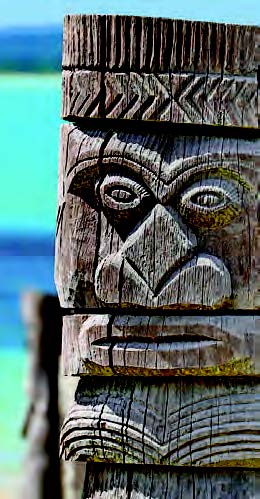Procedures and approaches upon arrival
PORTS OF ENTRY
Noumea is the only port of entry, mandatory for immigration formalities.. For a first technical stop in Lifou, Koumac, Hienghene or Touho (entry port valid for customs) you have a maximum of 72 hours to complete your entry formalities in Nouméa.
In Nouméa, call Port Moselle (Harbourmaster’s office) VHF 67 or Port du Sud, ph. : 27 47 77 who will help with your formalities, possibly on the visitor’s dock.
You can download in advance (www.sodemo.nc) the forms on Moselle Port Authority’s website or on each authorities’ website. Ships must fly the yellow flag until formalities are completed (immigration, customs, biosecurity) and the courtesy flag.

IMMIGRATION
(Border Police)
Formalities have to be completed at the arrival. A visa might be mandatory depending on the yachtsman‘s nationality except for the citizens:
- from the European Union ;
- holder of a residence permit issued by a Schengen state or associated member of the Schengen Area;
- from Andorra, Australia, Monaco, New Zealand, San Marino, Switzerland, Vatican;
- The list of countries exempted of short-stay visas can be found on the website :
www.diplomatie.gouv.fr
It is up to each yachtsman to check entry conditions , without the required visa a visitor won’t enter the country.
If a crew member arrives or is leaving by plane, : show the boat’s documents and a letter from the captain to the airport authorities.
CUSTOMS
Ships entering temporarily the territory, are placed under the IFT regime (taxes and duties withholding) for 1 year maximum.
- All the goods representing, a market value must be stated in writing. . Alcohol and cigarettes quantities are limited, overage products can be sealed. Weapons and ammunition are strictly regulated and cannot be imported without a permit (generally record sealed onboard). The disembarkation or sale of products is subject to a prior declaration to the Customs department. ;
- Once the formalities are completed, the ‘temporary franchise boat entry formalities’, form , endorsed by the Customs department, will be returned. This form must be kept during the whole stay (to collect duty free parcels) and presented to the Customs department for departure formalities. ;
- Lending the boat even for free, or selling of the boat is forbidden. However, the sale can be authorized upon reasoned request to the Customs department who may claim beforehand the payment of duties and taxes.
If you temporarily leave the territory, , the boat can benefit from the ‘warehouse regime’ which suspends the IFT regime and during which the boat is on hold in dry dock or afloat. The boat documents are then given to the Customs department. If you wish to stay over a year, you can import or move in your boat.
DUTY FREE
During its stay
A boat in transit can receive duty free parcels by showing their IFT document. If repairs are needed, you can be tax-exempted on spare parts. These can only be set up upon departure, , unless they are essential to the proper functioning of the boat. The authorization form must be completed by a custom clearance agent (doc. EX9).
BIOSECURITY
(SIVAP)
In New Caledonia, free of many pests and diseases, the import of any animal, plant or any product of animal or vegetal origin is restricted. Check with the SIVAP.
Cats & dogs will go in quarantine for 10 days, a prior request is compulsory. Animals having visited countries with rabies are not allowed in New Caledonia.
Upon your arrival, forbidden goods and waste will be collected for destruction. You are asked not to dump anything in the bins before the biosecurity agents’ arrival.




